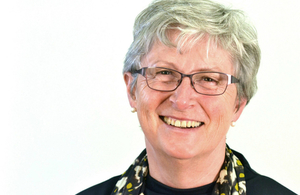News story: Jenrick: ‘Treasury supports Bake Off fever’
Charities can boost their donations by an extra 25 per cent for fundraisers like Macmillan Cancer Support’s ‘World’s Biggest Coffee Morning’ if they ask for donations rather than charging for food and drink.
Gift Aid can be claimed on charitable donations from taxpayers, but not when the money is given in exchange for goods. It is feared that many charity bake sales could be losing out because they directly charge for the item they are selling.
On the day of Macmillan’s Coffee Morning, which last year raised over £27 million to help support people living with cancer, the Minister is clarifying that by asking for donations instead of charging for food and drink, they can make the contributions go further. Macmillan has said that if everyone claimed Gift Aid on their Coffee Morning donations this year an extra £2 million could be raised.
The Exchequer Secretary to the Treasury, Robert Jenrick, said:
From the Great British Bake Off to Macmillan’s charity Coffee Mornings, baking is one of our favourite national pastimes and one that often benefits great charities. We want to support this bake-off fever.
Too many are missing out on an extra 25 per cent boost to donations, which is costing good causes dearly.
That’s why I’m clarifying the Gift Aid rules for anyone running a Coffee Morning. If you ask people to make a donation and offer them a coffee or cake, you could be making 25 per cent more on the funds you raise.
Gift Aid costs no extra to add on to your donation. It allows charities and community amateur sports clubs (CASC) to claim an extra 25p for every £1 donated. To add Gift Aid to a donation, you must have paid income or capital gains tax that year worth at least the value of the Gift Aid being added and give the charity permission to claim it. The Small Donations Scheme, introduced in 2013, does not require a declaration to be made for donations worth up to £20, making it simpler for charities to get extra support from government.

